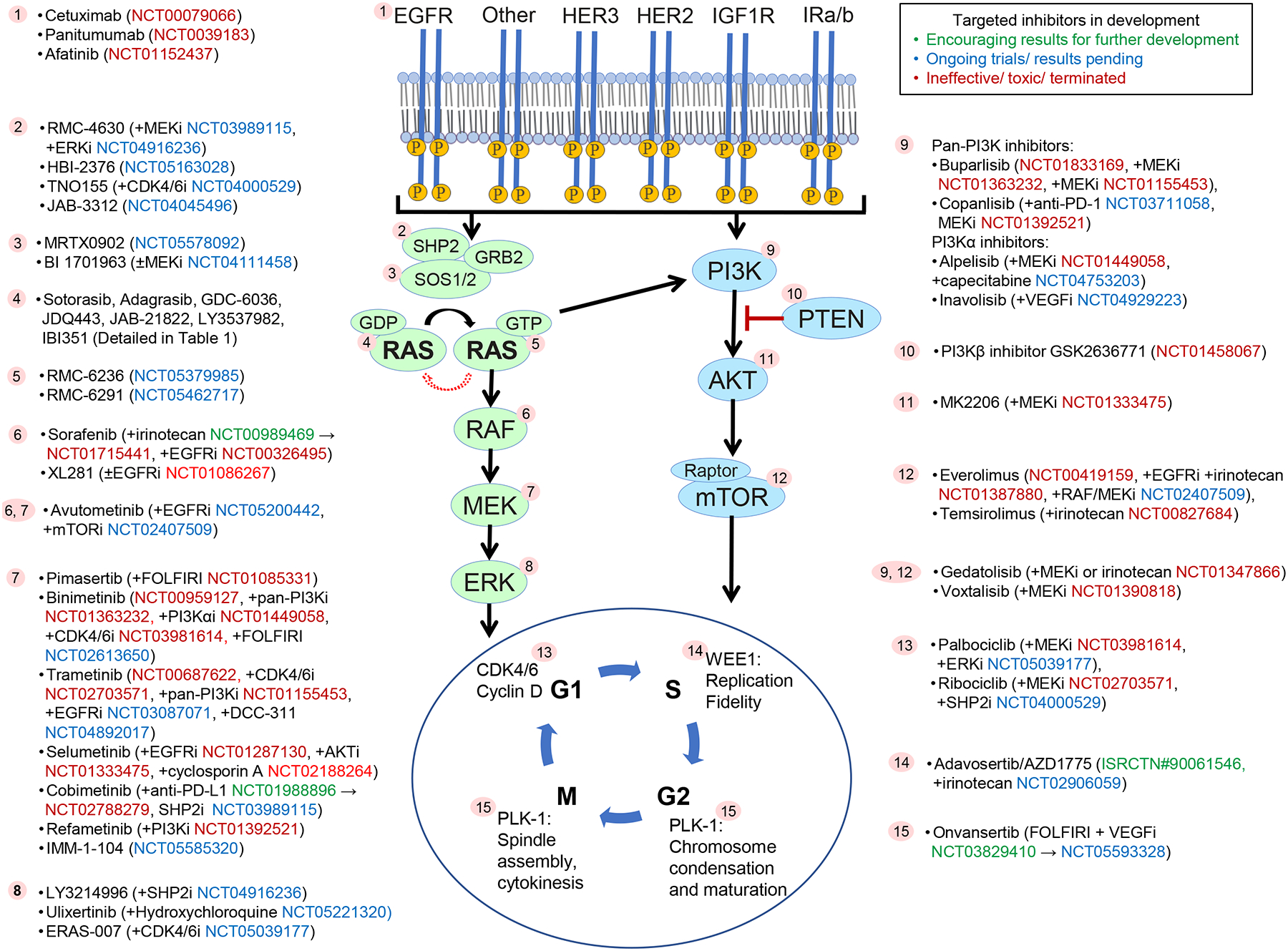Figure 2.

KRAS in oncogenic signaling.
Binding of ligands (e.g., growth factors, cytokines) to receptor tyrosine kinases activates guanine nucleotide exchange factors (e.g., SOS1/2), which mediates conversion of inactive GDP-bound RAS to active GTP-bound RAS. GTP-bound RAS promotes cancer growth mainly via activating ERK signaling and, to a lesser extent, via activating the phosphatidylinositol 3-kinase (PI3K) and other oncogenic pathway. An intrinsic GTPase of RAS inactivates it. Activating mutations of RAS are most frequent in the KRAS isoform. Signaling mediators of RAS against which targeted inhibitors have been / are in clinical development for KRAS mutant metastatic colorectal cancer are marked with numbers. Targeted drugs along with combination drugs/regimens (if applicable) and respective clinical trial numbers are shown next to each number. Clinical trials colors indicate encouraging results for further development (green), ongoing trials (blue) and ineffective/toxic regimens (red).
